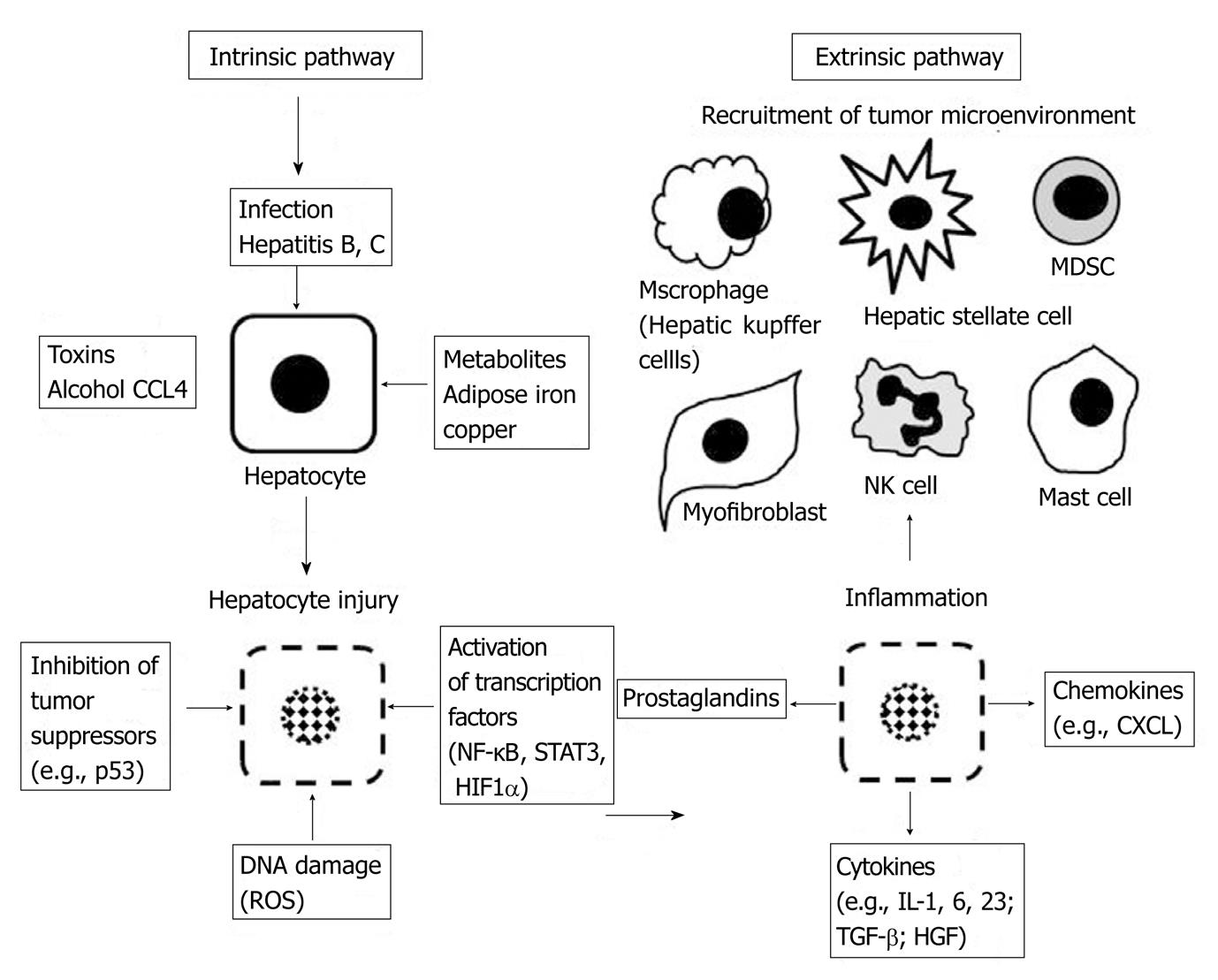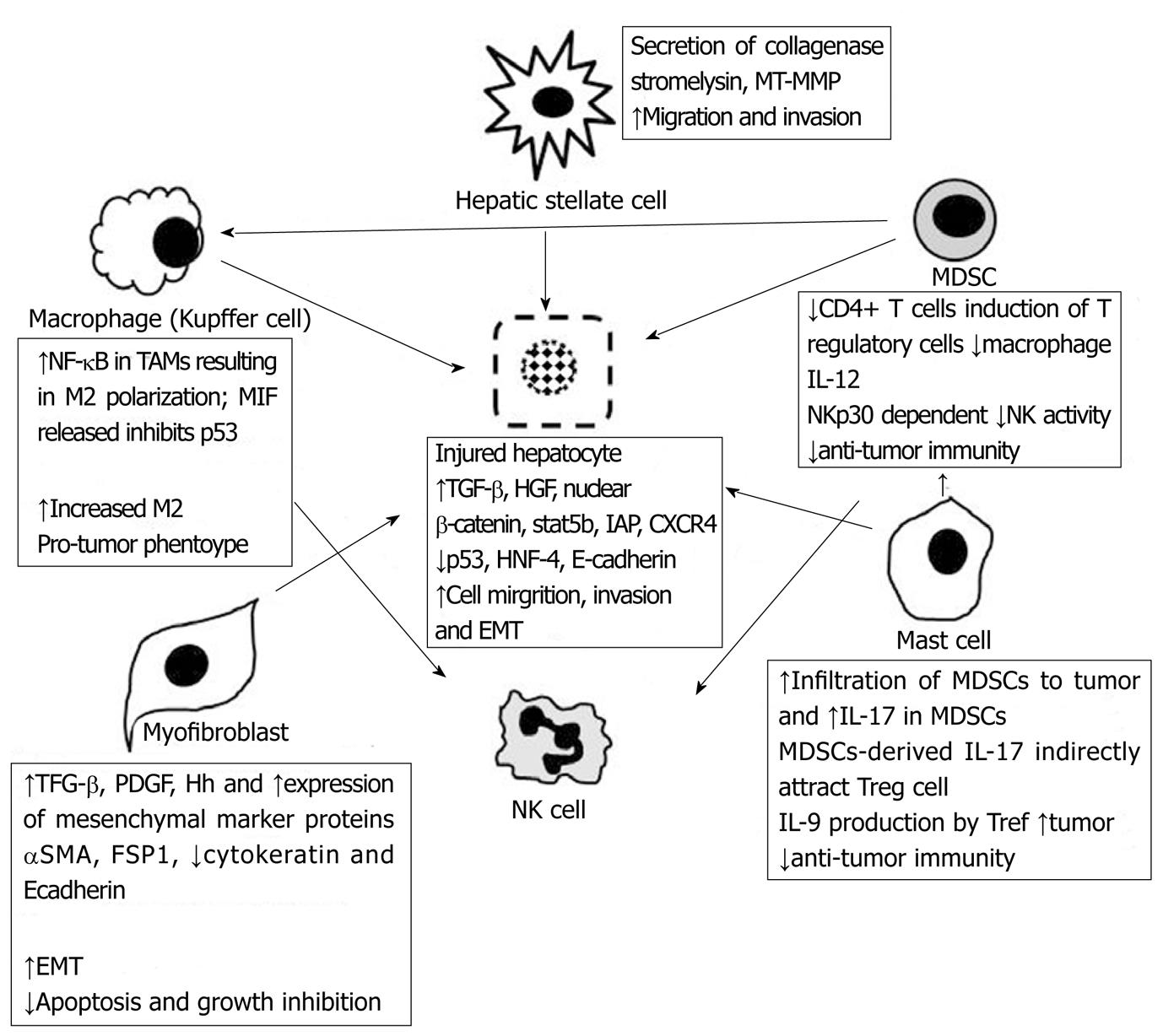Copyright
©2012 Baishideng Publishing Group Co.
World J Clin Oncol. Feb 10, 2012; 3(2): 15-23
Published online Feb 10, 2012. doi: 10.5306/wjco.v3.i2.15
Published online Feb 10, 2012. doi: 10.5306/wjco.v3.i2.15
Figure 1 The intrinsic and extrinsic pathways combine to create a local microenvironment around the injured and transformed hepatocyte to augment tumor promoting mechanisms.
ROS: Reactive oxygen species; HIF1α: Hypoxia inducible factor 1 alpha; NK cell: Natural killer cell; MDSC: Myeloid derived suppressor cell; IL: Interleukin; TGF-β: Transforming growth factor Beta; HGF: Hepatocyte growth factor; NF-κB: Nuclear factor kappa-light-chain-enhancer of activated B cells; CXCL: Chemokine ligand; STAT3: Signal transducer and activator of transcription 3.
Figure 2 The complex cellular network in the tumor microenvironment mediated by chemokines, cytokines, and cellular transcription factors.
NK cell: Natural killer cell; MDSC: Myeloid derived suppressor cell; IL: Interleukin; TGF- β:Transforming growth factor Beta; αSMA: Alpha smooth actin; FSP-1: Fibroblast specific protein; PDGF: Platelet derived growth factor; Hh: Hedgehog; NF-κB: Nuclear factor kappa-light-chain-enhancer of activated B cells; CXCL: Chemokine ligand; STAT3: Signal transducer and activator of transcription 3; Treg: T regulatory cells; MT-MMP: Membrane type matrix metalloproteinase; HNF-4: Hepatocyte nuclear factor-4; EMT: Epithelial-mesenchymal-transition; MIF: migration inhibitory factor.
- Citation: Wai PY, Kuo PC. Intersecting pathways in inflammation and cancer: Hepatocellular carcinoma as a paradigm. World J Clin Oncol 2012; 3(2): 15-23
- URL: https://www.wjgnet.com/2218-4333/full/v3/i2/15.htm
- DOI: https://dx.doi.org/10.5306/wjco.v3.i2.15










